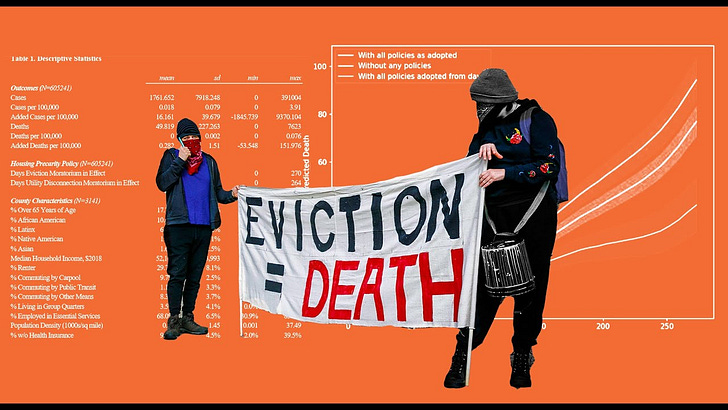During the pandemic, there was an almost endless series of articles about a “tsunami of evictions” coming as soon as the eviction moratorium was lifted. Well, these warnings are still with us. Now, “3.8 million renters will likely be evicted in the next two months” according to Yahoo.
It’s important not to make light of this. Evictions are a serious matter. They are difficult for people to endure and probably the worst part of being a landlord/property manager. And many Americans are suffering with inflation and higher rents.
But notice these articles always say something like “likely” or “could” or “are facing.” Somehow this crisis is always coming and never quite here.
I recently came across a pre-pandemic article by Roger Valdez in Forbes discussing the exaggerated “eviction crisis” that seems to just never go away. (Interestingly enough, despite being pre-Covid, the piece discusses the term "epidemic" and "outbreak" in relation to both evictions and the flu)
Not surprisingly, the "eviction crisis" that was being talked about even back then is often based on bad data, particularly (but not exclusively) mixing up eviction filings and actual evictions. Despite its age, it's still worth a read.
“[T]he actual number of renter households is more like 159,000 and that means the eviction filing rate (again, not actual evictions) is more like 7.8 percent. How many actual forced departures were there over that period? Half of the filings were dismissed (49.9 percent), so the eviction rate is more like 3.9 percent.”
And 3.9 percent is higher than most places. Seattle, for example, was much lower despite protestations of a crisis.
“When I reviewed another report about Seattle, I found that the “epidemic” and the “crisis” was being based on one year’s worth of eviction filings, 1,218 cases, out of 168,000 rental units in the city. That problem amounts to about .7 percent of the total rental units in the city. How many tenants were actually removed? The answer is about 600, or about .3 percent.”
And of course, none of these reports ask “When people won’t or can’t pay rent, what should happen?” other than appeals to emotion.
Unfortunately there has been a lot of that over the last few years. In the below video, Reason Magazine picks apart the embarrassingly flawed studies that tied evictions to coronavirus deaths.
But one should ask, given all the articles about a “tsunami of evictions” heading our way the last time, did it happen?
Well the Yahoo article above says it is already happening,
“Evictions are up, too, according to the Eviction Lab at Princeton University. In August, evictions were 52% above average in Tampa, 90% above average in Houston and 94% above average in Minneapolis-St. Paul.”
But this is just cherry picking. Eviction Labs monitors a variety of metro areas and six states (Connecticut, Delaware, Indiana, Minnesota, Missouri and New Mexico) .
In October, 2022, the number of evictions in those states were off their historical average by 5%, -39%, -3%, 42%, -5% and -29% respectively. In fact, on average, evictions were down 4.8% across those six states from their historical average (as tracked by Eviction Labs). Here, for example, is Indiana:
While November (with partial data) looks to be a bit worse than October, it should be remembered we are still coming out of a long eviction moratorium where some people had stayed without paying rent for quite a while. Furthermore, as many of these articles point out, federal and state assistance to prevent evictions has tapered off.
Evictions are not a good thing, of course. But again, what is the solution? The only ones that seems to be offered is either forcing landlords to subsidize delinquent tenants (and thereby, if you know anything about economics, also require tenants who pay their rent to subsidize delinquent tenants) or to nationalize housing. And if you know anything about the disastrous history of government housing, well, this shouldn’t appeal to you.
Either way, we’re certainly not in an eviction crisis, nor are we likely to face one sans a deep recession in 2023. (And I should note, we called this back in 2021 when there were fears of an “eviction tsunami” as the moratoriums ended.)



